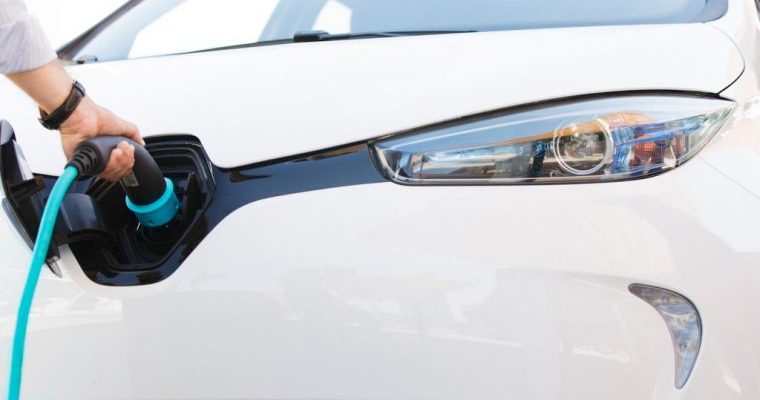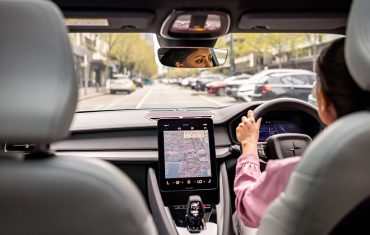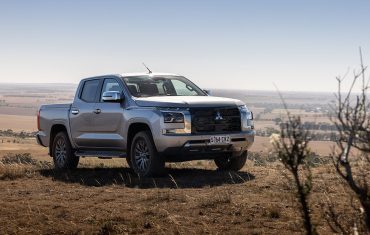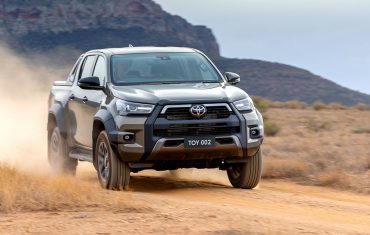
Electric car (EV) ready or not?
DriverIt’s time to join the EV revolution and seriously consider making your next car an electric car
Charging stations may be popping up all over our towns and cities but electric vehicles (EVs) are still a tiny fraction of the New Zealand vehicle fleet. It’s time for that to change… Electric cars are the future and NZ needs to buy into that future.
C’mon people its 2018 and our new vehicle stats are still dominated by utes and SUVs. We’ve put ourselves in a position where we’re world leaders in terms of sustainable electricity generation, but we’re well back in the pack when it comes to using that power for getting ourselves around.
International stats are a bit embarrassing. We’re lagging behind. The latest, August 2018 Ministry of Transort figures figures show that only about 1.3% of our vehicles are electric vehicles or hybrids of some type. Norway leads the way with 39.2% of its fleet but Sweden sits at 5.2 percent and we’re well behind many European countries, where around 2% of their cars are electric powered. The UK is at 1.9% and we’re only just ahead of the US’s 1.1%.
“only about 1.3% of our vehicles are electric vehicles or hybrids of some type. Norway leads the way with 39.2%”
The word is that “Electric cars may rule the world’s roads by 2040” – that’s just over 20 years from now! That might seem fast. But an IMF economist who has been looking at the transition from fossil fuel to electric propelled vehicles points back to the adoption of cars a century ago telling National Geographic:
“We were surprised at how fast cars replaced horses as the main means of transport in the early 1900s. It happened in only 10 to 15 years in spite of the many hurdles.”
And, as the National Geographic points out, the hurdles for the transition to EVs could be seem as small by comparison. The first hurdle is price but as with any new technology the downward price trend can be fast.
In a useful February 2018 survey of EV options in NZ, Infometrics researcher, Mieke Welvaert, points to a key tipping point:
“The time has come that buying an electric vehicle might be cheaper for you than getting a petrol car.”
Overcoming barriers to EV adoption
There are barriers to the adoption of EVs around the price of vehicles, infrastructure and a lack of vehicle options. But the government is moving to overcome them.
Minister for Climate Change, James Shaw has recently promised incentives for the adoption of EVs. These might even include feebates where high emission vehicles incur a fee and low emission vehicles, like EVs, receive a rebate.
This is needed because stats show a record number of EVs are being sold but the positive effect on emissions is cancelled out by the sale of large-engined petrol and diesel vehicles – those SUVs and utes with 3000cc and bigger engines.
With imported vehicles now including EVs and a growth in new EV options the news isn’t all bad.
Indeed, there is much that is positive in the NZ EV picture. For many reasons — including the way we generate electricity and the way we use and keep our vehicles (urban drivers only travel about 22km a day and park off the street) – NZ is well suited to electrical car use. And NZ is on its way to becoming Ev-friendly. Previous governments have already moved to smooth the way for the adoption of EVs with the Electric Vehicles Programme dating back to May, 2016 and the vehicle charging network now covers the whole country.
The benefits of electric
More than half the world’s new vehicle sales may be electric by 2040 according to projections. And these projections might change given the cost of lithium-ion batteries is dropping and manufacturers increase their own projections of market supply.
The auto industry is joining the EV revolution with multiple electric models in the works, overcoming the lack of models problem. A point that confirms that EVs make economic sense as well as environmental sense.
Two main benefits of transitioning to electric vehicles include:
- Reduced running costs – charging an electric vehicle costs around 20% less than running a petrol or diesel vehicle. Electric cars are comparatively simple too, with far fewer parts, which means they need less frequent and the servicing they do need is cheaper.
- Reduced emissions – NZ as a country mightn’t be a big emitter of greenhouse gases but we’re not great on a per capita basis – we have a lot of cars and use them to get around where other countries offer better public transport. There’s no disputing the fact that EVs are better for the environment
Joining the corporate charge for change in Australasia
As we have seen, The NZ government is on board but the Australian situation is a little different, with government slower to move, and the corporate sector has had to lead more.
The Climate Group is an international group of corporates who have set a competitive challenge to the auto industry to deliver electric vehicles sooner and at a lower cost. EV100 is the only initiative of its kind and members aim to swap their large diesel/petrol vehicle fleets to electric and/or installing electric battery charging infrastructure, by 2030.
The Australian Government’s lack of haste shouldn’t stop industry from transitioning their fleets to electric. The first ten members of the Climate Group include LeasePlan, Baidu, Deutsche Post DHL, Heathrow Airport, HP Inc., IKEA Group, MetroAG, PG&E, Unilever, and Vattenfall.
These organisations understand the savings they’ll make with transitioning their fleets to electric, are already positive enough to begin the process, despite Government support or haste.
Electric cars are coming, ready or not
There is no debate, manufacturing and consumer pressure will see the increase in electric car ownership as the infrastructure improves and EVs become more affordable . It is in our best interest to get on board, now so we can:
- incentivise individual and fleet ownership of electric cars
- invest in relevant infrastructure
- allow manufacturers to import a variety of models to New Zealand
- ensure our car parks are equipped to handle the increase of electric vehicles and are not made redundant spaces in highly populated areas
- transitioning our large fleets to less expensive, electric fleets to reduce our running costs
- re-educating our automotive repairs, mechanics and auto-parts dealers
- develop a sustainable recycling and disposal system for our old cars.
Ask an expert. SG Fleet / LeasePlan is happy to walk you through the issues around transitioning to EVs. Ask us how.
 Driving Insights
Driving Insights




